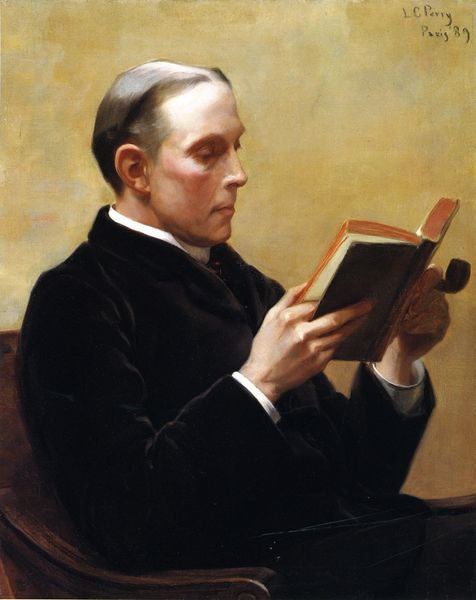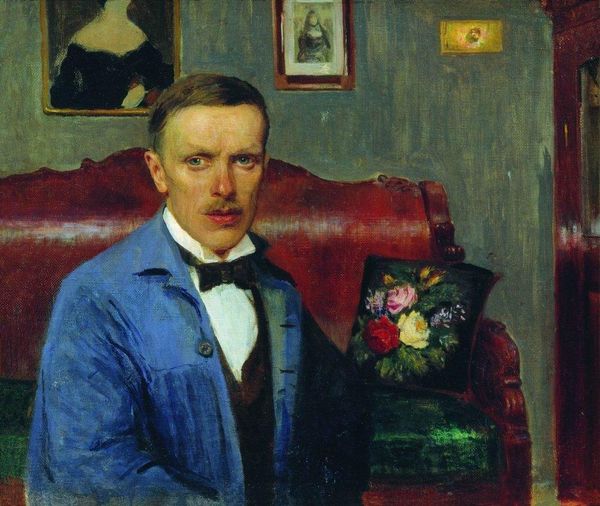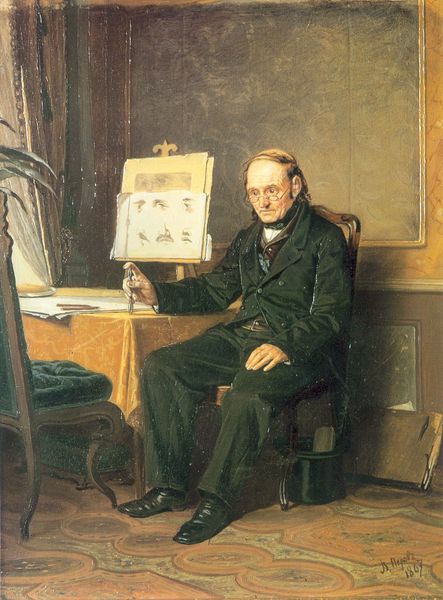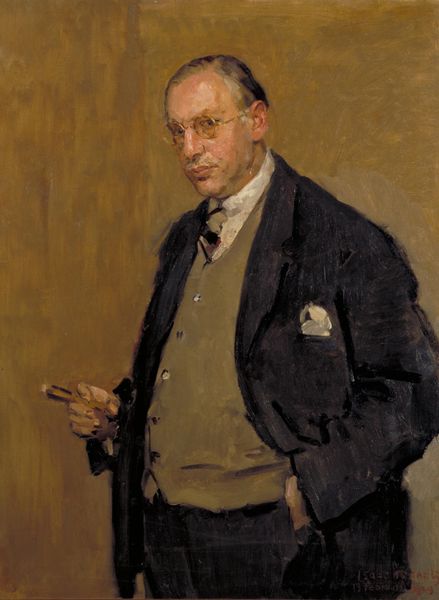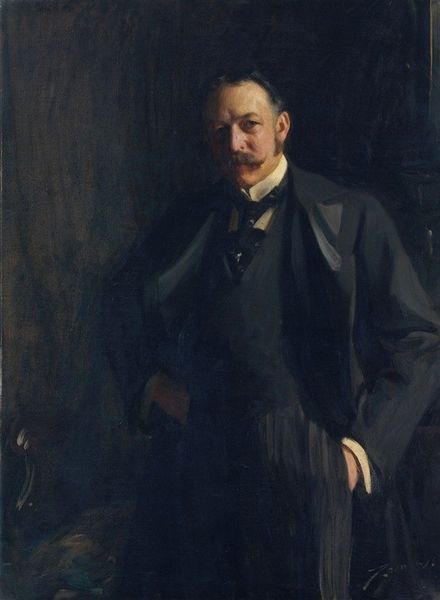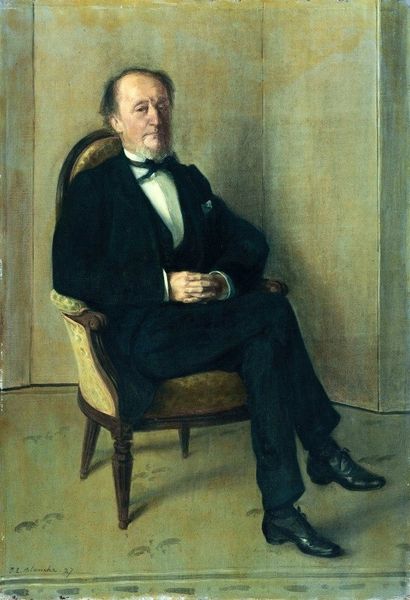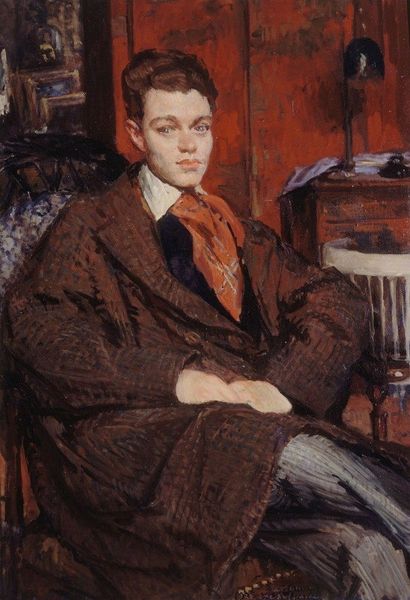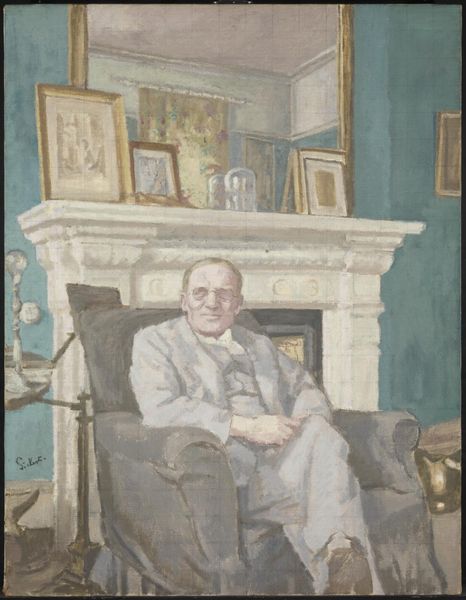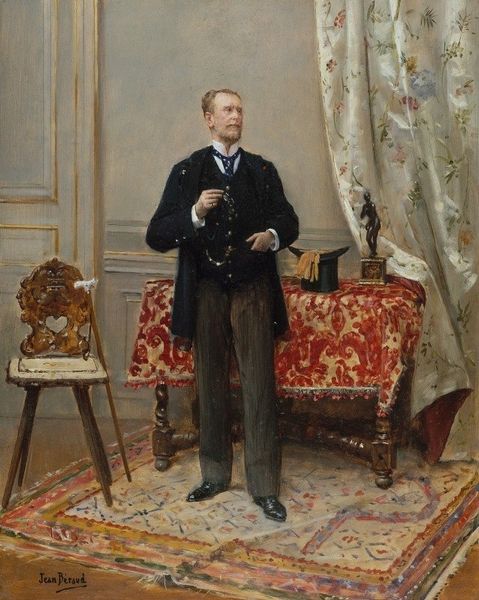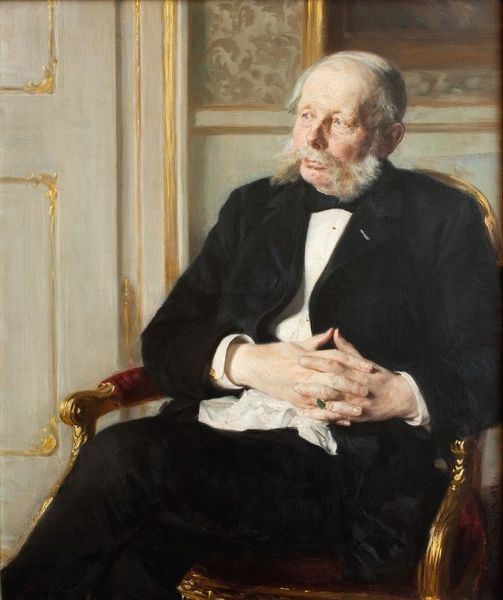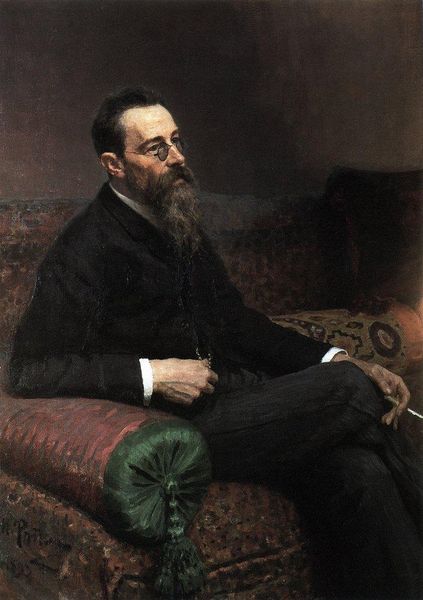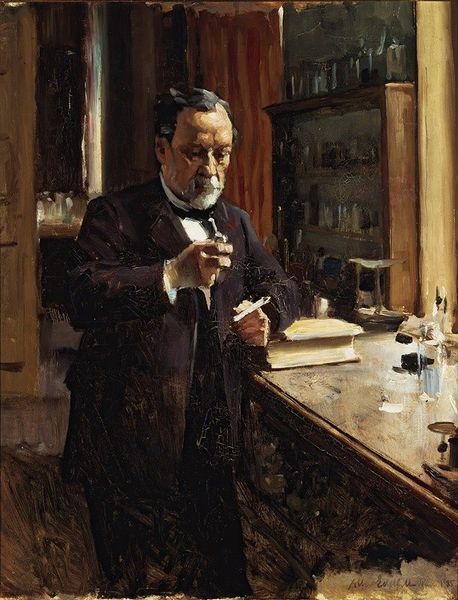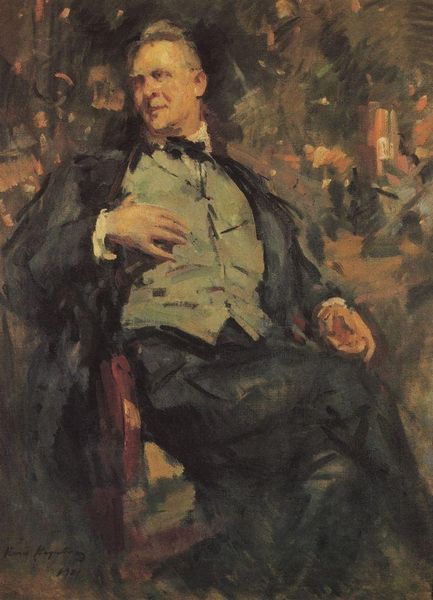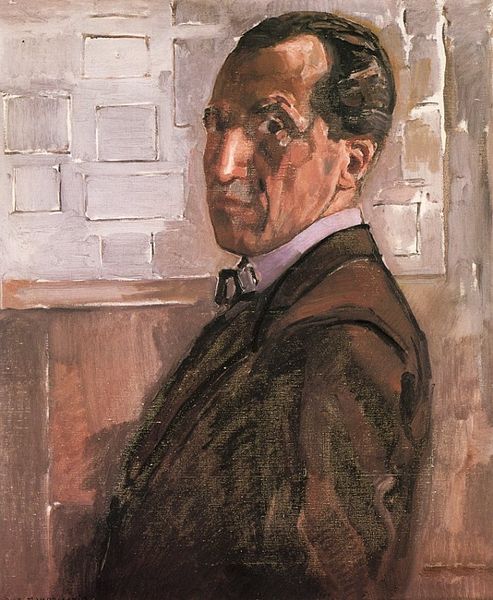
painting, oil-paint
#
portrait
#
character portrait
#
portrait
#
painting
#
oil-paint
#
portrait subject
#
portrait reference
#
portrait head and shoulder
#
romanticism
#
history-painting
#
facial portrait
#
sitting
#
portrait art
#
fine art portrait
#
realism
#
celebrity portrait
#
digital portrait
Dimensions: 42.2 x 37.9 cm
Copyright: Public domain
Editor: This is Christen Købke’s "Portrait of Frederik Hansen Sødring," created in 1832, using oil paint. The composition feels intimate; like we are stepping right into Sødring's personal space. I’m intrigued by all the subtle details in the background. What do you see in this piece? Curator: Observe first how Købke's compositional arrangement facilitates a dynamic visual field. The subject's posture—his arm casually resting, the placement of the palette—all converge to guide the viewer's eye through structured layers. The use of chiaroscuro reinforces the geometric balance. Editor: So you’re saying it’s less about who Sødring was as a person and more about the artist's structural decisions? Curator: Precisely. While biographical readings might offer tangential insights, the aesthetic potency lies in the arrangement of forms, colours and tonalities, culminating in what we perceive as “intimacy.” The textured surface, created by methodical layering of pigment, invites closer inspection, yet also serves a structural function in creating depth. Editor: That’s a very different lens through which to view a portrait! I was so focused on trying to understand Sødring as a person that I completely missed the interplay between color and form. Curator: Consider how Købke eschews narrative in favor of an emphasis on pure form. The various geometrical forms, each interlocking to build up a complete representational entity, is really interesting from this period. Ask yourself if this piece embodies a shift towards abstraction. Editor: Looking at it now, the shapes of the objects are actually much more present than I noticed. This has really changed my perspective on how to analyze paintings. Curator: Indeed. It highlights the value of considering not just what is depicted, but also how it is depicted; how form informs our perception.
Comments
No comments
Be the first to comment and join the conversation on the ultimate creative platform.
